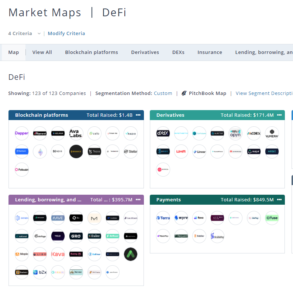The Emory community has access to a wealth of business research databases. This series highlights many of these great resources, including content and the best applications for classes and career prep.
What You Will Find
Pitchbook is a financial database focused on private capital markets, including venture capital, private equity and M&A transactions. Use Pitchbook to understand new investment strategies, benchmark fund performance, map company ecosystems, and more. You can run targeted searches, research emerging technologies, create data visualizations, and generate comps on private and public companies, investors, deals, mergers and acquisitions, funds, advisors, and people. Pitchbook also provides commentary and analysis of current events, trends, and issues relevant to the capital markets.
Use for Class Projects
Pitchbook can be a powerful tool for gauging future trends and opportunities; its Market Analysis, Curated Verticals, Emerging Spaces, Market Maps, and Market Size Estimates can be valuable proxies for identifying potential market disruptions.
If your research is ongoing, save your search strategies and company lists within your PitchBook account for future reference, or set up daily, weekly or monthly alerts for new companies that meet your criteria You may also export a limited number of company records to .xls. This is limited to a maximum of 10 rows daily and 25 rows monthly, so be thoughtful in what you export.
Use for Interview Prep
PitchBook covers startups, VC and PE-backed companies, as well as mature private and public firms, investors, buyers, and funds. You can research and target firms by industry or vertical, as well as financing history.
PitchBook’s competitors lists are great for identifying both large and small competitors to firms – great for target company lists when contemplating your career search, as well as researching the firm and competitors.
Additional Business Resources
You can also use the Business Research Guide to locate additional business resources, locate tips for how to use them, and understand which are best for your specific research needs.
